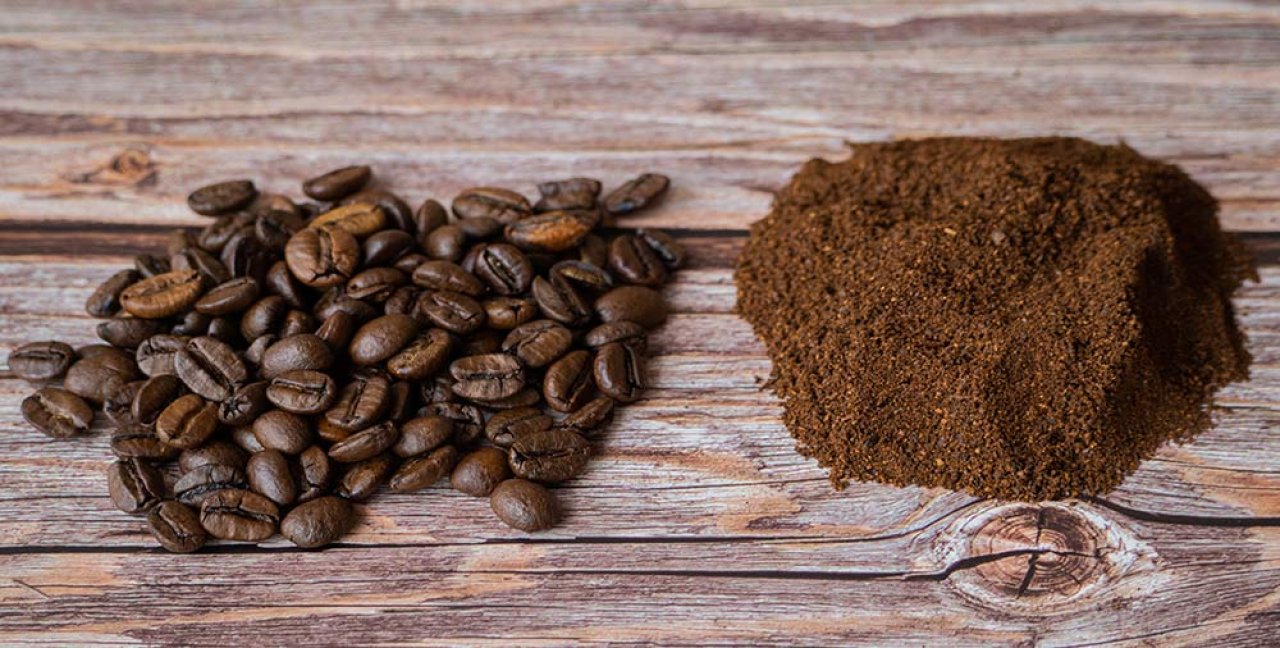
Coffee powder
Coffee powder is a dark brown, free-flowing powder formed from roasted coffee beans. It's created commercially via freeze-drying or spray-drying. Coffee powder is a rich source of caffeine and antioxidants. Instant coffee solids also termed soluble coffee, coffee crystals, coffee powder, or powdered coffee.
Coffee powder is manufactured from coffee beans, which are the seeds of the Coffee plant. These beans are collected, processed, roasted, and then ground to form coffee powder. Coffee powder can be manufactured from many types of coffee beans, such as Arabica, Robusta, or mixtures of both. Each cultivar has its own distinct flavor profile and attributes.
Cardamom coffee powder is a flavored coffee powder blended with the fragrant and unique flavor of cardamom. Cardamom coffee is extremely popular,It's liked for its rich and aromatic taste, which mixes the strength of coffee with the warm and exotic flavor of cardamom. To produce cardamom coffee powder, ground coffee beans are combined with cardamom powder or entire cardamom pods. The cardamom lends a distinct and fragrant taste to the coffee, providing a gentle sweetness and a hint of spice.
Benefits of coffee powder
Antioxidants
Coffee includes several antioxidants, including phenols, which can help combat free radicals that can damage the skin. Antioxidants can help battle acne, promote collagen synthesis, and lessen hyper-pigmentation.
Antibacterial properties
Coffee beans contain chlorogenic acid, a polyphenol with antioxidant effects. Chlorogenic acid has been demonstrated to display antibacterial action against a range of bacteria, including those responsible for dental plaque production and foodborne diseases.
Moderate coffee intake
A moderate coffee intake of roughly 2–5 cups a day is connected to a decreased probability of type 2 diabetes, heart disease, liver and endometrial malignancies, Parkinson's disease, and depression.
Natural stimulant
Coffee works as a natural stimulant that can boost your heart rate, blood pressure, and produce a short rise in alertness.
Skin benefits
Coffee podi can help prevent skin aging by combating free radicals and protecting the skin from harm. he exfoliating properties of coffee podi can help slough off dull, dead skin cells, revealing fresher, brighter skin underneath.
Boosts Mental Alertness
Coffee includes caffeine, a natural stimulant that can boost cognitive performance, improve attention, and increase alertness. It can assist battle weariness and enhance alertness.
Enhances Physical Performance
Caffeine in coffee can also boost physical performance by raising adrenaline levels and mobilizing fatty acids from adipose cells, which can be utilized as fuel for exercise.
Promotes Weight loss
Coffee may assist in weight loss by raising metabolism, enhancing fat oxidation, and decreasing hunger. Caffeine has been demonstrated to temporarily improve metabolic rate and promote fat burning during exercise.
Medical use of coffee Powder
Pain Relief
The caffeine concentration in coffee powder has analgesic qualities and can boost the effectiveness of pain-relieving medicines. Some caffeine can help lower pain intensity and duration, making it effective in the management of headaches, migraines, and muscular pain.
Asthma Management
Coffee includes bronchodilator qualities due to its caffeine level, which can help relax and open up the airways. In rare circumstances, coffee powder has been used as a home treatment to ease symptoms of asthma and improve breathing.
Gastrointestinal Health
Coffee drinking has been connected with a lower risk of some gastrointestinal disorders, such as gallstone disease and liver cirrhosis. Additionally, coffee may have preventative benefits against colon cancer and other digestive diseases, probably due to its antioxidant content.
Neurological Disorders
Frequent coffee drinking may be connected with a lower risk of neurodegenerative disorders, including Parkinson's disease and Alzheimer's disease. The neuroprotective benefits of coffee may be attributable to its antioxidant qualities and capacity to alter neurotransmitter function.
Diabetes Prevention
Moderate coffee drinking has been associated to a decreased incidence of type 2 diabetes in various studies. The antioxidants and bioactive components in coffee may help increase insulin sensitivity and manage blood sugar levels, lowering the risk of developing diabetes.
Liver Health
Coffee drinking has been connected with a decreased risk of liver illnesses, including fatty liver disease, liver fibrosis, and cirrhosis. Coffee's hepatoprotective properties may be linked to its capacity to decrease inflammation, limit fibrosis, and stimulate liver regeneration.
Cognitive Function
The caffeine and antioxidant content in coffee may have good benefits on cognitive function and memory. Regular coffee drinking has been related with enhanced cognitive function, attentiveness, and alertness, particularly in elderly persons.


